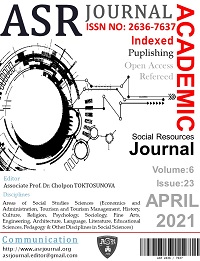EFFECT OF ACCOUNT RECEIVABLE PERIOD ON PROFITABILITY OF SELECTED FOOD AND BEVERAGE COMPANIES IN NIGERIA
Author :
Abstract
He study examined the effect of account receivable period on the profitability of selected food and beverage companies in Nigeria. The study selected five years period from 2014 to 2018. The study used ex-post facto research design. The population is 43 food and beverages companies listed on the Nigerian stock exchange during the period of study. The study uses purposive sampling technique to select the sample based on the following criteria and the sample size is ten (10) food and beverages firms in Nigeria. Panel regression was used to analysed the data with a e-view statistical package of 9.00. The study noted that account receivable period has a negative and significant effect on profitability (measured by ROA). The will of significance to scholars and academician who will research on this filed of study. It will serve as reference materials to future researchers This study is unique since it is original.
Keywords
Abstract
He study examined the effect of account receivable period on the profitability of selected food and beverage companies in Nigeria. The study selected five years period from 2014 to 2018. The study used ex-post facto research design. The population is 43 food and beverages companies listed on the Nigerian stock exchange during the period of study. The study uses purposive sampling technique to select the sample based on the following criteria and the sample size is ten (10) food and beverages firms in Nigeria. Panel regression was used to analysed the data with a e-view statistical package of 9.00. The study noted that account receivable period has a negative and significant effect on profitability (measured by ROA). The will of significance to scholars and academician who will research on this filed of study. It will serve as reference materials to future researchers This study is unique since it is original.
Keywords
- Joshi, R. N. (2007). Cash Management: Perspectives, Principles and Practices. London: New Age
- Joshi, R. N. (2007). Cash Management: Perspectives, Principles and Practices. London: New Age International (P) Ltd.
- Ibojo, B. O. & Asabi, O. M. (2014). Compensation Management and Employees Performance in theManufacturing Sector, A Case Study of a Reputable Organization in the Food and Beverage Industry. International Journal of Managerial Studies and Research. 2( 9) 108- 117
- Kimani, N. J., Thomas, K. N. & Arasa, R. (2017). Effect of Compensation Strategies on EmployeePerformance: A Case Study of Mombasa Cement Limited. International Journal of Innovative Social Sciences & Humanities Research 5(3):25-42
- Lucia. F. & Shirin, A. S. (2017). Relation of Compensation and Benefits on Employees’ Performance: AStudy of Audit Firms in Bahrain. International Advanced Research Journal in Science, Engineering and Technology, 4(5) 2017
- DeNisi, A. S., & Pritchard, R. D. (2006). Performance Appraisal, Performance Management and ImprovingIndividual Performance: A Motivational Framework. Management and Organization Review. 2(2), 253-277.Armstrong, M. (2006). A Handbook of Human Resource Management Practice (10th ed.). London: Kogan Page
- Hakala, D. (2008). How to Measure Employee Performance, 16 Ways. HR World Newsletter.





